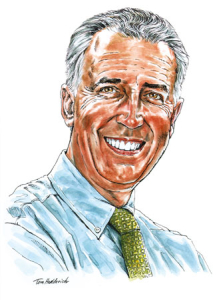Building on the successful and innovating formula of MIP Cancun, advice for similar, smaller TV markets and for small indie companies attending larger markets.

The business model of TV trade shows has been virtually unchanged since its inception in 1960 at the offices-based MIFED, in Milan, Italy. It was refined in 1965 by MIP-TV in Cannes by introducing stands, and, in 1979, the Principality of Monaco introduced a hotel-based trade show for its Monte Carlo TV Market. But they all used the same formula: Sellers pay for the exhibition space, buyers are invited for free, and participants pay for access.
Some variations throughout the years included sellers paying for extra badges and buyers paying for access, but only for the very successful events.
However, four years ago, and 54 years after the initial MIFED film and TV trade show, MIP-TV’s organizer, Reed Midem, came up with an innovating business model for its MIP Cancun hotel-based TV market on the northeast coast of Mexico’s Yucatán. It’s a model that I’d like to improve, with a focus on smaller markets such as MIP Cancun, Discop and NATPE Budapest, and on small indies at major markets.
For MIP Cancun, Reed Midem invites buyers from TV outlets throughout Latin America for free: The organizers pay for their airfare, meals and accommodations. The only requirement is that comped buyers have a least one meeting with each exhibitor. Buyers who are not associated with a TV outlet (of any platform), such as distributors looking for product, pay a registration fee.
The market is held in a large ballroom at the Grand Fiesta Americana Hotel (it is possible that this year the market will be held at a different hotel), which last year accommodated 141 tables set up for 135 distribution companies (some had multiple tables). Each table cost exhibitors U.S.$5,000 and includes a three-day hotel accommodation. All participants have access to free luncheons, where additional business is conducted.
The organizers also arrange meetings. The pre-scheduled meetings consist of nine sessions from 9:45 am to 5:30 pm on day one, 13 sessions on day two and five on day three. Last year, there were 3,700 meetings in total.
Pre-scheduled meetings last 25 minutes each and are clocked with the sound of a bell, similar to the stock exchange floors.
Even though market organizers are sticklers in assuring that meetings run smoothly and are quick to call out buyers who are late on the PA system, some no-shows always happen. This can occur at the event or before the market, when buyers cancel at the last minute. When this happens, Reed Midem’s only option is not to invite them again and, perhaps, refuse to let them attend their other markets.
Here’s a better solution for distributors who attend markets with at least two sales executives: For those buyers who commit to meet with a specified number of sellers at smaller markets or with small indies at major markets, the event organizer pays hotel rooms in full. For this service, each participating distributor pays, for example, $500 extra (and, in effect, pays for the buyers’ hotels).
If, for instance, a buyer commits to meet for 25 minutes (allowing an additional 15-minutes to go from one meeting to another) with a total of 35 sellers in a three-day period, the full hotel bill is paid: $1,000. The hotel bill is divided by 35, so if the buyer misses five appointments $143 is deducted, in addition to a $85 penalty ($17 per missed appointment) for a total of $228 that the buyer has to pay the hotel personally.
In this case, the seller gets a $17 credit for each missed appointment, if it is reported. If, in the program there are more than 35 sellers, the buyer selects the 35 sellers, but the seller is guaranteed at least 30 meetings (or $17 per meeting).
by Dom Serafini
Audio Version (a DV Works service)

Leave A Comment